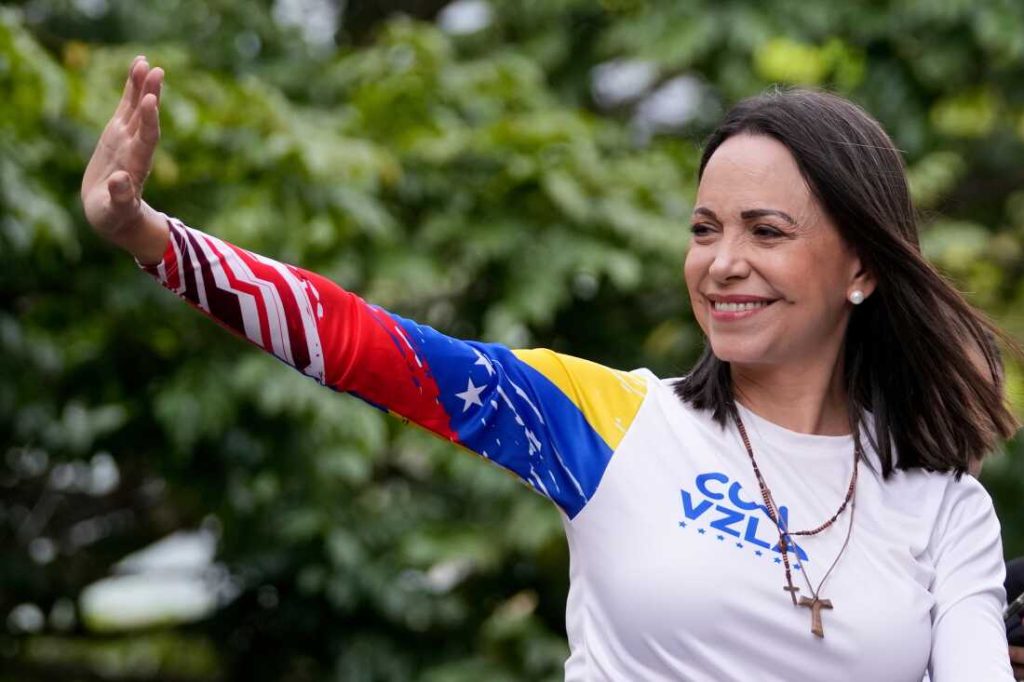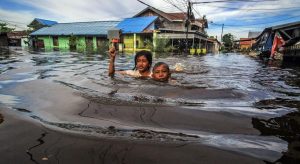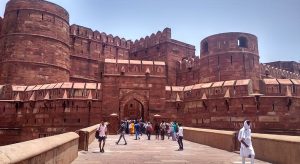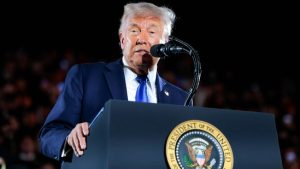Why Nobel Laureate María Corina Machado Is Drawing Sharp Criticism

FILE - Opposition leader Maria Corina Machado waves from atop a truck during the closing election campaign rally for presidential candidate Edmundo Gonzalez in Caracas, Venezuela, Thursday, July 25, 2024. (AP Photo/Matias Delacroix, File)
María Corina Machado, awarded the 2025 Nobel Peace Prize for her efforts in advancing democracy in Venezuela, is now facing intense critique and scrutiny from various quarters.
Why She Received the Nobel
Machado emerged as a prominent leader in Venezuela’s opposition movement, especially during periods when authoritarian rule tightened. Despite serious threats and mobilized campaigns against her, she remained in the country and continued to voice dissent. Her work has been portrayed as a struggle to preserve basic freedoms, protect civil rights, and resist dictatorship — traits that positioned her as a unifying figure for democratic forces in Venezuela. In honoring her, the Nobel Committee described her as a “champion of peace” and a symbol of nonviolent resistance in times of political tension.
Sources of Controversy
Despite her acclaim, Machado’s past statements and alliances have become the focal point of criticism:
- Support for Israel and Gaza Conflict
Critics have highlighted her vocal support for Israel, especially in the context of its military actions in Gaza. Machado has referred to Israel as a “genuine ally of freedom,” and in social media posts she has drawn parallels between Venezuela’s struggle and Israel’s statehood. She has also adopted positions that align closely with Israeli political interests, which has led some to question whether her commitment to peace is selective. - Association with Netanyahu’s Likud Party
Her critics point out that she signed a cooperation agreement with the Israeli Likud party in 2020, which has further fueled accusations of partiality. Some observers argue that such ties compromise the moral consistency expected of a Nobel Peace laureate, especially given the civilian suffering in conflict zones. - Calls for Foreign Intervention
Machado has openly urged foreign involvement in her country’s political crisis, having sent petitions to leaders abroad — including Israel and Argentina — to pressure regime change in Venezuela. This stance has been framed by critics as undermining national sovereignty and destabilizing political norms.
Backlash and Broader Repercussions
The decision to award Machado has drawn condemnation from both political actors and civil society groups. Some argue that by honoring a figure with perceived partisan foreign ties, the Nobel Committee risks eroding its reputation as an arbiter of global peace. Others see the award as a political statement rather than a purely human rights recognition.
For many Venezuelans and international observers, Machado’s dilemma epitomizes how complex the intersection is between defending democratic ideals and navigating geopolitical fault lines. Her laureateship has opened debate not only on her actions, but on the criteria and impartiality of prestigious awards in today’s polarized world.







